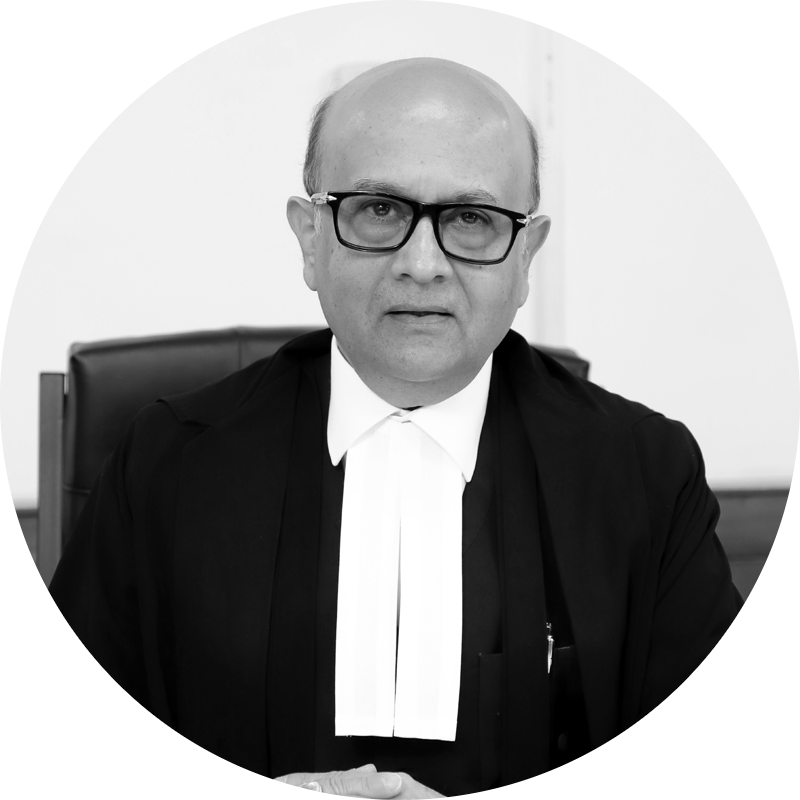Supreme Court: In a civil appeal against a decision of the Rajasthan High Court whereby the High Court dismissed the revival application of the applicant solely on the ground that the previous order recording the compromise deed held that no liberty was granted to the parties to restore the appeal, the Division Bench of PS Narasimha and Manoj Misra, JJ. allowed the appeal, setting aside the impugned order and remand the matter to the High Court to decide the application for recall on its own merits.
Background
The appellant is the owner of the suit property. He filed a suit against the respondents for cancellation of the power of attorney allegedly forged by respondent 1 for entering into sale deeds in respect of suit property in favour of respondent 2 and sought a grant of permanent and mandatory injunction. The Trial Court dismissed the suit and the appellant preferred a first appeal before the Rajasthan High Court. During the pendency of the first appeal, the appellant and respondent no. 2 entered into a compromise, recorded in a deed dated 18-05-2022 and corrigendum compromise dated 08-07-2022.
Subsequently, the parties filed an application under Order 23, Rule 3 of CPC for disposal of the first appeal as per the compromise, wherein it was stated that respondent 1 does not have any objection to the compromise and that the appellant can file for restoration of the appeal if the agreed payment is not completed and the cheques are dishonoured. The High Court disposed of the first appeal by taking the compromise into consideration However, it also held that the parties did not have the liberty to get the first appeal restored.
When the cheques issued by respondent 2 were dishonoured, the appellant moved before the High Court for restoration of the appeal alleging fraud and illegal interference with his possession. Vide the impugned decision, the High Court dismissed the application on the only ground that in its previous order, the Court recorded that the parties were not given liberty to restore the appeal.
Analysis and Decision
The Court perused Order 23, Rules 3 and 3A of CPC which provides for ‘Compromise of suit’ and ‘Bar to suit’, governing compromise decrees. The Court noted that in Banwari Lal v. Chando Devi law on the disposal of a proceeding in accordance with a compromise between the parties and on recall of a compromise decree was laid down, holding that under Order 23, Rule 3, the Court must be satisfied upon applying judicial mind that the agreement between the parties is lawful before accepting the same and disposing of the suit. Further, the Court noted that the proviso and the Explanation to Order 23, Rule 3 mandate that the Court must “decide the question” of whether an adjustment or satisfaction has been arrived at, and it is clarified that void and voidable agreements under the shall be deemed to be not lawful.
The Court also relied on Pushpa Devi Bhagat v. Rajinder Singh , wherein the law on the issue has been summarised stating that-
“The only remedy available to a party to a consent decree to avoid such consent decree, is to approach the court which recorded the compromise and made a decree in terms of it, and establish that there was no compromise.”
In the matter at hand, the appellant alleged fraud by the respondents in his recall application. The Court noted that Explanation to Order 23, Rule 3 clearly states that void and voidable agreements under the Contract Act shall not be deemed to be lawful, and by alleging fraud in recall application, the appellant is effectively impugning the legality of the compromise as proving the same would render the agreement voidable under the Contract Act. The Court stated that-
“When the court disposes of a proceeding pursuant to a compromise under Order 23, Rule 3, it bears the duty to examine this issue and be satisfied that the agreement or compromise is lawful. The proviso explicitly obligates the Court that entertains the petition of compromise to determine this issue, and as per the law laid down by this Court in Banwari Lal (supra), this issue can be agitated by way of a recall application even after the compromise decree has been passed.”
Perusing the compromise deed, the Court noted that it recognises the appellant’s right to file for restoration of appeal in case of non-compliance and para 7 stipulates that the compromise will be considered void in case of non-payment. Hence, the Court clarified that the compromise deed itself recognised the parties’ right to approach the Court to question its validity in certain circumstances, as these clauses were in line with the public policy consideration of access to justice reflected in Section of that stipulates that agreements which restrain a party from enforcing his rights through legal remedies are void.
Regarding the High Court’s approach in denying the appellant’s recall application, the Court termed their approach as incorrect approach, as it defeats the statutory right and remedy available to the appellant under the CPC. The Court reiterated that only the Court that entertains the petition of compromise can determine its legality, at the time of recording the compromise or when it is questioned by way of a recall application. No other remedy is available to the party who is aggrieved by the compromise decree as an appeal and fresh suit are not maintainable under the CPC. Hence, the High Court was not correct in curtailing the statutory remedy available to the appellant in the first place. The Court added that when there is a statutory remedy available to a litigant, there is no question of a Court granting liberty to avail of such remedy as it remains open to the party to work out his remedies in accordance with law.
Additionally, the Court stated-
“As a matter of public policy, Courts must not curtail statutorily provisioned remedial mechanisms available to parties.”
CASE DETAILS
| Citation: Civil Appeal No. 14328/2024 Appellants : Navratan Lal Sharma Respondents : Radha Mohan Sharma | Advocates who appeared in this case For Petitioner(s): For Respondent(s): |
CORAM :

PS Narasimha, J.

Manoj Misra, J.
The post appeared first on .
